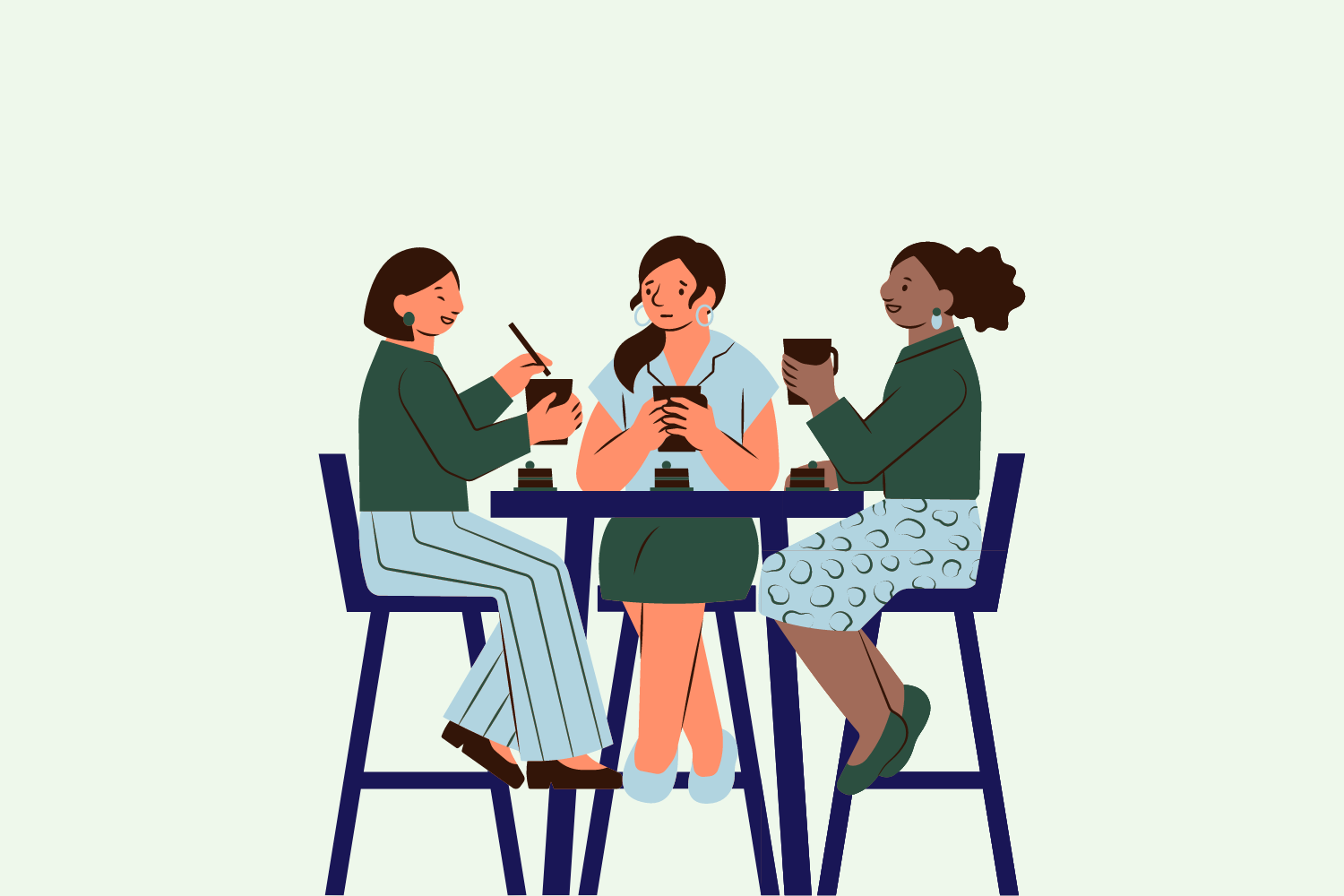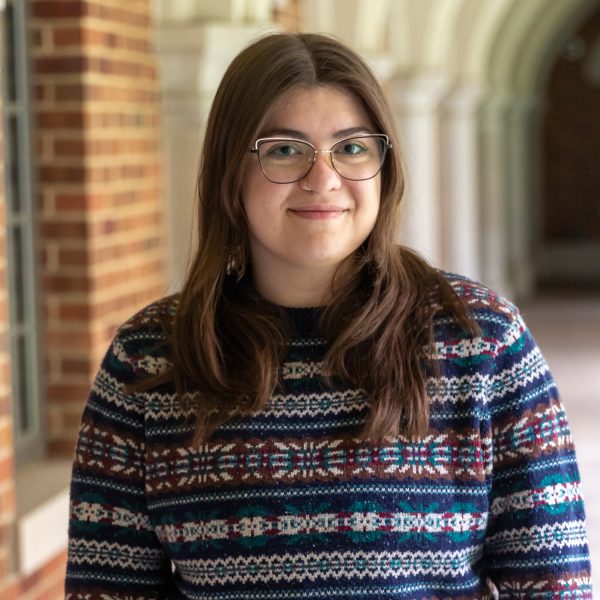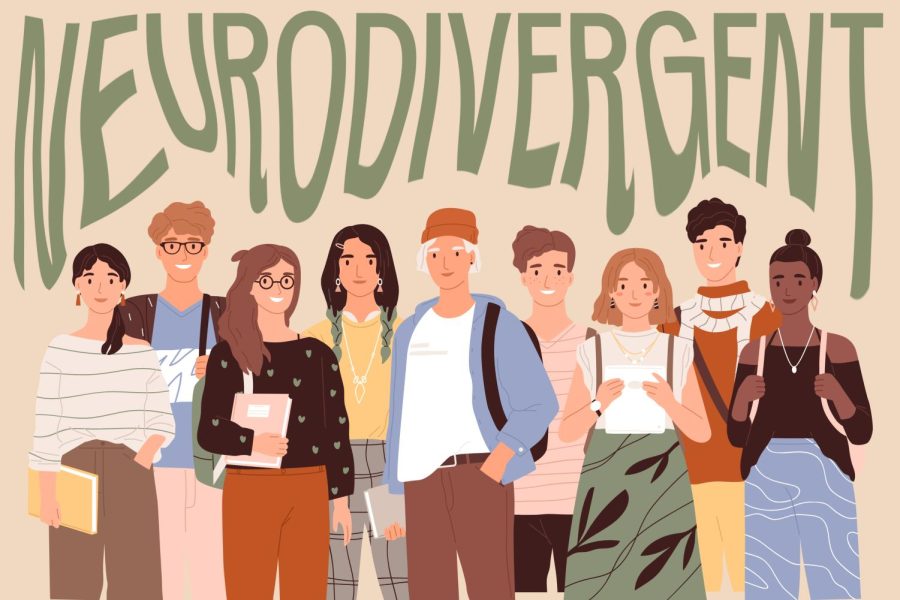One morning, I opened Instagram and looked at the first recommended Reel. A girl talked about her partner, describing him as having a “touch of the ‘tism.” The partner in question was not autistic but rather had some kind of strong niche interest. This choice of phrasing confused me — loving fantasy football doesn’t give you autism and neither does a quirk like collecting baseball cards. So, why do people keep talking like this, and why does it bother me so much?
Psychobabble is defined by the Oxford English Dictionary as “psychological jargon regarded as meaningless or trite,” and, unfortunately, its roots go deep. While it was first used as early as 1975, I have watched psychobabble flourish in my lifetime — especially among my generation. When my friends were particular about how they made their bed in the morning, they were “so OCD.” When they would quickly flip from happy to sad as a hormonal teenager, they were “so bipolar.” Yet, I’ve never heard people who suffered from these conditions using them as adjectives so frivolously. The worsening overuse of psychological terms is shifting a simple choice of phrase from misuse to unintended ableism. We should consider picking better descriptors for our problems — especially since our current vocabulary exacerbates the rampant misinformation about people with mental illnesses or disabilities.
During COVID-19, psychology became a hot topic as people frequently engaged with psychological informational videos — “pop psychology” — that provided bite-sized content for a large audience. On one hand, this rise in awareness is a great thing — people who may have never known about a condition can learn about it and sympathize with more people in the world. Even more importantly, people who see a random video about a condition may learn that they have it, having never considered seeking help prior due to lack of knowledge or misinformation. I have seen many of my peers find treatment, camaraderie and solace in a diagnosis with something that they originally learned about through social media. I sought many of my own treatment paths due to learning this way that what I suffered from was not actually “normal.” However, just as people may use this often under-researched information to educate themselves, it is not uncommon to see people self-diagnose based on stereotypes and mass-produced content alone, lacking the substantiated research to truly self-suspect. Where is the line between raising awareness and spreading misinformation?
As defined in the DSM-5, or the widely used diagnostic criteria for mental disorders, most mental disorders are unrecognizable from their stereotypes. Obsessive-compulsive disorder (OCD) is a complex disorder with many facets, though “cleanliness” and the need for physical order are not even in the DSM-5 criteria for diagnosis. Bipolar disorder is a mood disorder that shows extreme highs and lows, though this does not always present as simply “happy” versus “sad.”
From Kanye West to Kurt Cobain, bipolar disorder gets its coverage in the media. However, displaying vulnerable people in their worst moments paints a picture that bipolar people are unpredictable monsters. Worse, in the case of West, his bipolar disorder is used simultaneously to make him look like he is constantly losing his mind and to justify the bad acts he has committed — these acts possibly having nothing to do with the disorder at all. That’s, grimly, the impression that many people get from bipolar coverage in the media — they perceive that bipolar people are unstable and hurt others. So, when people act out or have moody moments, they’re jokingly called “so bipolar.” It seems wrong to me that society derives such a serious — and arguably dehumanizing — impression of bipolar disorder from the media, yet also uses it so loosely to describe anything from a wife to the weather.
Different from the psychobabble of my childhood, there are new victims with conditions such as autism spectrum disorder (ASD) and ADHD. There has been a shift away from the traditionally overused terms — OCD and bipolar disorder — due to the growing awareness that it is cruel to belittle these conditions into caricatures of themselves. Now, speaking on the current victims of overuse, ADHD and ASD are often grouped in discussions — leading to symptoms across the two disorders bleeding into each other and becoming confusing to navigate. Despite a few overlapping traits such as trouble with focus and intense interests — as well as a large comorbidity rate likely contributing to this “grouping together” — the two disorders are incredibly distinct. However, society has now watered down ADHD to mean “chatty and forgetful,” while autism is now simply “quirky and awkward.” Though forgetfulness is a diagnostic criterion, ADHD does not have to include being talkative for a diagnosis. Similarly, watering down ASD to being quirky, silly, awkward or simply “different” can be incredibly harmful and blatantly offensive. People with autism, while deserving of equitable treatment and a happy life, could not receive a diagnosis without it significantly harming their daily function. Frankly, there is nothing silly or quirky about it.
The comorbidity of ADHD and ASD is not a negligible fact. Since such a large portion of the autistic population — around 50% or more — has ADHD, it can become hard to tell them apart as an outsider. However, assuming that someone with one disorder also has the other is extremely damaging. To be blunt, as a person with ASD, I get sick of constantly explaining to people that I am not “so ADHD” for being hyperverbal — I don’t even have ADHD at all. I also get tired of constantly asking people to stop using terms generally used for ASD, such as “special interest,” if they are neither autistic nor “AuDHD,” as the aforementioned comorbidity is affectionately called. The ever-overlapping inclusivity of ADHD into ASD that exists to accommodate people with both disorders seems to be slowly erasing the fact that they are, in fact, two separate things. Unfortunately, when ADHD begins to blur with ASD, both are taken less seriously than if they were understood in their own spaces.
Similar to other disorders, the rise in awareness of ADHD and its symptoms has caused me to frequently see people who do not have the condition calling themselves “so ADHD” when they get distracted, forget something or lose their train of thought. While it’s one thing for people with ADHD to highlight how the condition affects their lives, the way that it is constantly dragged through the mud and belittled as a “whoops, lost my keys” disorder is astounding. Highlighting how hard ADHD can be in its own respect by using the term appropriately allows the disorder to be respected and empathized as its own independent struggle — which it is and always has been.
It is nobody’s fault that we, as college students, often communicate this way. Rather, it’s the collective consciousness of social media that leads us to echo each other indefinitely. When we hear a term, sometimes we feel that the way it was used in context reflects our experiences. So what if it’s hyperbolic or incorrect? People will know what you mean. Realistically, this assumption is true. When I hear “I’m so OCD,” I know that the person likely does not actually have OCD but rather stellar cleaning habits. Still, despite psychobabble being interwoven into our vocabulary, I believe that it’s never too late to make a change.
I am not against discussing these topics on social media. In fact, despite the desensitization, I think that it can be genuinely helpful for both education and normalization of mental disorders. The stigma around topics like anxiety, depression and bipolar disorder has seen worlds of improvement since the push to discuss it on social media. Often, discussing these topics is multi-faceted and has its pros and cons. But, I believe that the average person is considerate and smart enough to listen to these discussions without parroting the words out of context.
By reducing the daily usage of psychobabble and limiting the use of psychological terms to their appropriate context, we create a space to speak our minds exactly how we intend to. When I tell people that I have ASD, they sometimes truly believe that I am exaggerating for dramatic effect in a conversation. So, instead of fighting the battle where people feel sorry and treat those with mental or developmental disorders like children, now we fight the battle where nobody takes you seriously in the first place. However, practicing mindfulness to pick the best words that we can allows us to say exactly what we mean the first time we say it.
So, feel free to make your TikTok about how you cried in the closet at work to normalize your feelings — just don’t call your boss a bipolar narcissist who is so OCD about how you organize the filing cabinet.







